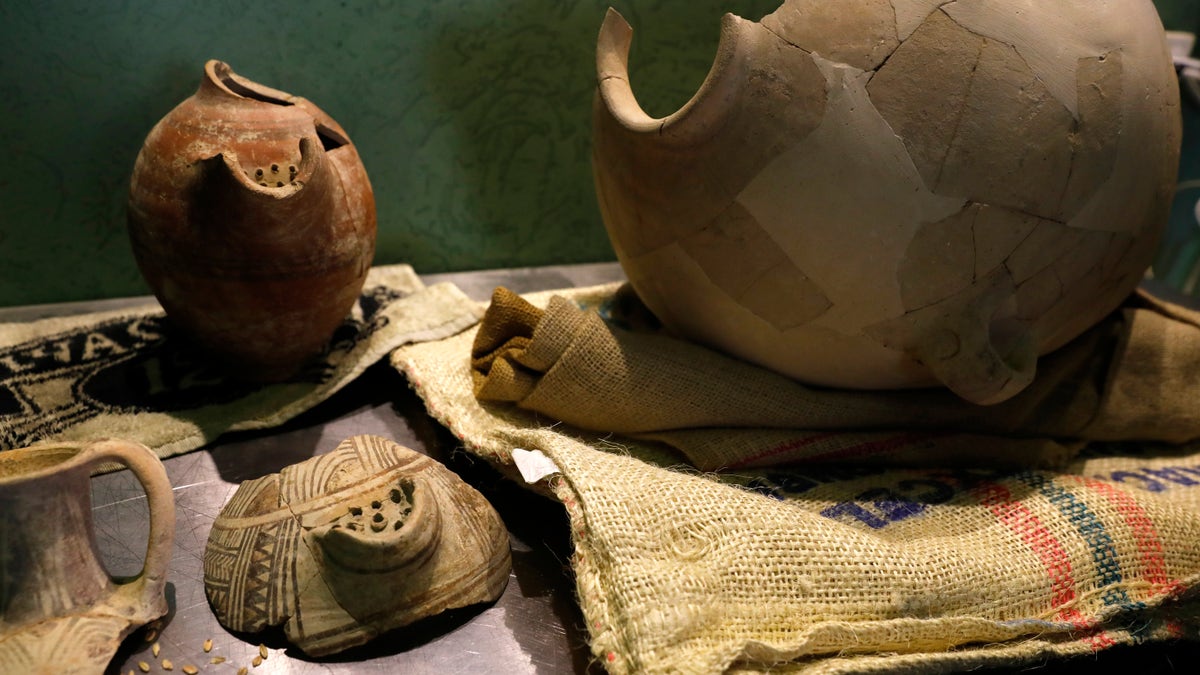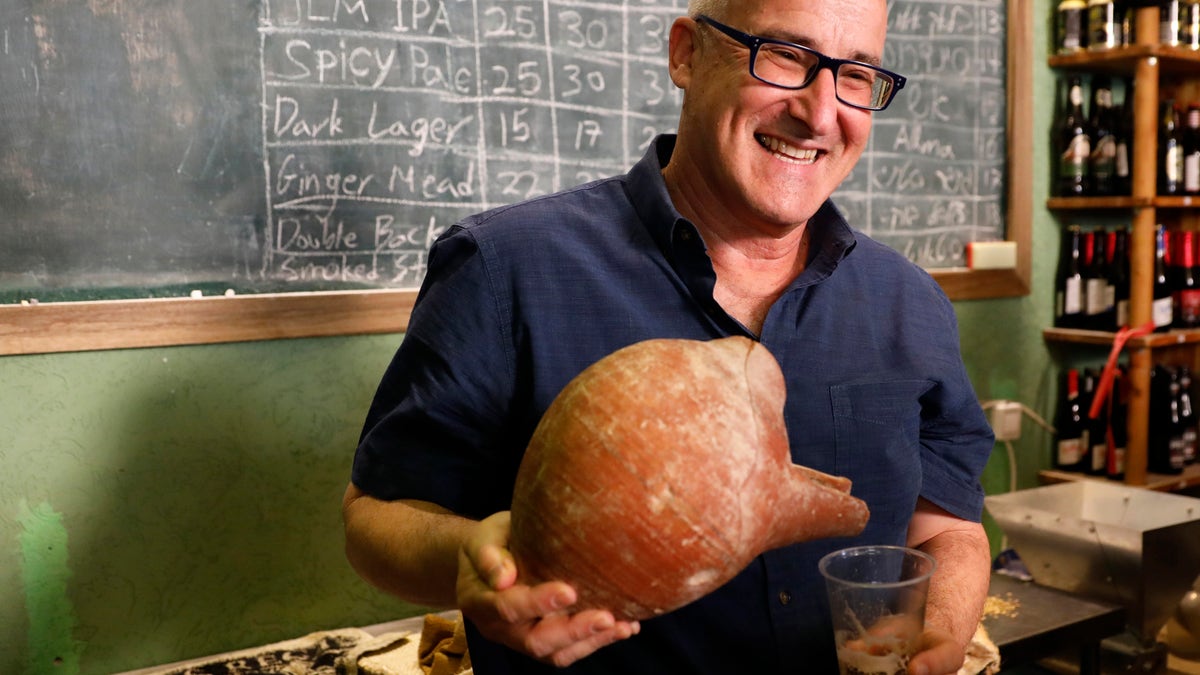
Ancient jars are on display during a press conference in Jerusalem, Wednesday, May 22, 2019. Israeli researchers celebrated Wednesday a long-brewing project of making beer and mead using yeasts extracted from ancient clay vessels -- some over 5,000 years old. (AP Photo/Sebastian Scheiner)
That's one old brew.
If you've ever wondered what type of libations were enjoyed by our ancestors, Israeli scientists have made some progress in answering that question. On Wednesday, researchers announced that they had produced beer and mead using yeasts extracted from ancient clay vessels, some of which were more than 5,000 years old.
Archaeologists and microbiologists from the Israel Antiquities Authority and four Israeli universities worked together to study yeast colonies discovered in microscopic pores in pottery fragments. The small shards were found at Egyptian, Philistine and Judean archaeological sites in Israel spanning from 3,000 BC to the 4th century BC, according to a press release.
Now the researchers are touting brews made from so-called "resurrected" yeasts as an important step in experimental archaeology, a field that seeks to reconstruct the past in order to better understand the flavor of the ancient world.
NEW YORK'S AMAZING MEGA-MONUMENTS THAT WERE NEVER BUILT

Prof. Aren Maeir, from Bar Ilan University, holds an ancient jar and a glass of beer during a press conference in Jerusalem, Wednesday, May 22, 2019. (AP Photo/Sebastian Scheiner)
Beer was a staple of the daily diet for the people of ancient Egypt and Mesopotamia.
The yeast samples came from nearly two dozen ceramic vessels found in excavations around the country, including a salvage dig in central Tel Aviv, a Persian-era palace in southern Jerusalem and 'En Besor, a 5,000-year-old Egyptian brewery near Israel's border with the Gaza Strip.
"The greatest wonder here is that the yeast colonies survived within the vessel for thousands of years--just waiting to be excavated and grown. This ancient yeast allowed us to create a beer that lets us know what ancient Philistine and Egyptian beer tasted like," said Ronen Hazan, with the Hebrew University School of Dental Medicine, in a press statement.
VOYNICH MANUSCRIPT MYSTERY CONTINUES AS EXPERTS QUESTION WHETHER 'ALIEN' CODE HAS BEEN CRACKED
"By the way, the beer isn't bad. Aside from the gimmick of drinking beer from the time of King Pharaoh, this research is extremely important to the field of experimental archaeology--a field that seeks to reconstruct the past. Our research offers new tools to examine ancient methods, and enables us to taste the flavors of the past," Hazan said.
Scientists worked with a craft brewer from Jerusalem to create a basic ale using yeast from the pots.

Craft brewer from Biratenu, the Jerusalem Beer Center, Shmuel Naky, right, pours beer during a press conference in Jerusalem, Wednesday, May 22, 2019. (AP Photo/Sebastian Scheiner)
Although the beer incorporates modern ingredients, like hops, that were not available in the ancient Middle East, it's the revived yeast that provides much of the flavor.
"We tried to recreate some of the old flavors that people in this area were consuming hundreds and thousands of years ago," said Shmuel Naky, a craft brewer from the Jerusalem Beer Center, who helped produce the beer and mead, according to The Associated Press. Yeasts, he said, "have a very crucial impact on flavor."
CLICK HERE TO GET THE FOX NEWS APP
Naky described the beer as "spicy, and somewhat fruity, and it's very complex in flavor," all attributes that researchers said were produced by the ancient yeast.
Their next aim? They'd like to pair the resurrected yeasts with ancient beer recipes to better reproduce drinks from antiquity.
The Associated Press contributed to this report.